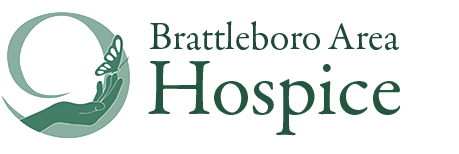30 Jan It’s Never too Late for Love
Ruth Nangeroni, Hospice Care Coordinator
My most memorable hospice client was a man, S, who was basically all alone in the world. He’d estranged himself from his family and had no real friends to speak of.
Childhood abuse suffered in mental health hospitals had left S with such severe PTSD he’d been unable to withstand any type of medical treatment until recent symptoms had gotten extreme and scary. When he was able to work up the courage to see a doctor, he was given only months to live and they referred him to us for practical and emotional support. The referring clinician shared that she thought having some support in figuring out how to navigate his final months would be crucial.
The first time I met S, he was clearly agitated and anxious and we didn’t talk for very long. I told him about our services and offered volunteer support for practical help and companionship. S made it clear that he didn’t want companionship and he did not want to talk to anyone; he just wanted help sorting through the piles of boxes that filled his apartment.
I found an extremely competent and experienced volunteer for S. For the next 4 months the volunteer called S every week and he declined visits/help.
That all changed one day when S called my office and shared that he’d lost the use of his car. It turns out his car was his lifeline. He sat outside in his car to have a smoke several times a day and drove to local thrift stores and diners daily. While not having a car greatly diminished S’s quality of life in the short term, it simultaneously led to an improvement in his quality of life far beyond anything he/we expected.
The next several weeks were rocky as we came to know and support this curmudgeonly, rude, obnoxious, messy guy and his demands. He was obnoxiously proactive in trying to get his needs met. His volunteer and I were spending time with him regularly helping with medical appointments. Somehow he came to trust us as we learned his ways and came to know that his bark was worse than his bite. It became easier for us to feel the fear inside his actions and respond with loving calm, helping him tolerate uncomfortable and invasive medical procedures. Once we had a better understanding of how to work with S, we called in 2 other volunteers to provide more support.
Over time S turned from ranting at us to talking to us and eventually with us. He was a fascinating mix of high intelligence, awareness, outside the box thinking, fear and tenderness.
Over the next few months we helped S complete his advance directives, DNR/COLST, navigate local social services and the medical system. We helped him communicate with friends he hadn’t spoken to in decades. We helped him buy a car with the insurance money from his previous car. We took him shopping when he was up for it and did it for him when he was not.
S grew more and more comfortable with us and began to really open up and share his stories, his feelings and his dreams. We shared meals around town and countless cups of coffee. S was a poor man but he was the most generous tipper I have known! He was also generous with his gratitude, always thanking us for our support and love. And we did love him. Somehow it had all turned to love! S was able to feel our love and return love. Our visits and phone calls began ending with mutual expressions brotherly/sisterly of love.
On many occasions S expressed that he had never felt so loved and cared for. He commented that he now knew the best quality of life he ever had as an adult. He also remarked on the bittersweetness of it in the light of his approaching death.
We helped S plan a Celebration of Life where more than 10 of us gathered together at his favorite local restaurant and celebrated, with him, the joy of new friends.
As S’s body declined, his anxiety and fear rose and we spent many nights sitting with him and holding his hand. He spoke often of the past. He was also continually taking care of business and discussing end-of-life plans and preparations. We helped him as much as we could until it was done. We knew he wanted a simple burial with a graveside funeral and we assured him we would take care of it.
As the weeks wore on, S continued to decline. More volunteers were signing up to sit with S at night so he didn’t have to be alone.
S had applied for and received Act 39 meds to hasten his death, but he never used them. One spring night, about 9 months after I first met him, S died peacefully in his sleep.
We had a simple funeral for S covering his humble coffin with pine boughs, forsythia and daffodils.
I will always remember this dear man and the many lessons I learned with and from him. I will always remember the open-hearted generosity of our volunteers. And, I know in my heart with absolute certainty that it is never too late for love.

